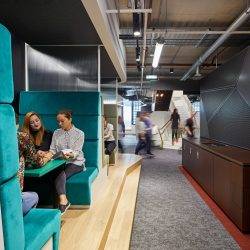February 8, 2019
Half of HR departments plan to offer new employee benefits
 According to Gallagher’s Benefits Strategy & Benchmarking Survey (registration required), 45 percent of HR practitioners are planning changes to current employee benefit offerings amid a highly competitive labour market. The survey shows an increasing number of organisations are fully aware of the measurable impact that benefits have on engagement and productivity. Among HR practitioners planning changes, 72 percent are seeking to enhance benefits, thereby improving their employer brand and becoming more competitive in recruitment. The second-most popular planned change is improving flexibility in benefits, with 47 percent attempting to bolster flexible options to extend individual choice. (more…)
According to Gallagher’s Benefits Strategy & Benchmarking Survey (registration required), 45 percent of HR practitioners are planning changes to current employee benefit offerings amid a highly competitive labour market. The survey shows an increasing number of organisations are fully aware of the measurable impact that benefits have on engagement and productivity. Among HR practitioners planning changes, 72 percent are seeking to enhance benefits, thereby improving their employer brand and becoming more competitive in recruitment. The second-most popular planned change is improving flexibility in benefits, with 47 percent attempting to bolster flexible options to extend individual choice. (more…)





















 Small and mid-sized businesses have hired three times more people than larger businesses over the past five years and could overtake large companies by 2030, according to new analysis of the latest ONS data commissioned by Santander Business Banking. However, separate research commissioned by the bank has found that significant numbers of young people are failing to recognise the significant job opportunities that SMEs offer. Just a third (35 percent) of Generation Z and Millennials leaving full time education say they wish to work for an SME, while an even smaller proportion, just one in six (18 percent), want to work for a start-up or micro business.
Small and mid-sized businesses have hired three times more people than larger businesses over the past five years and could overtake large companies by 2030, according to new analysis of the latest ONS data commissioned by Santander Business Banking. However, separate research commissioned by the bank has found that significant numbers of young people are failing to recognise the significant job opportunities that SMEs offer. Just a third (35 percent) of Generation Z and Millennials leaving full time education say they wish to work for an SME, while an even smaller proportion, just one in six (18 percent), want to work for a start-up or micro business. 











February 7, 2019
Maybe the time has come to shoot the workplace messenger
by Rob Harris • Comment, Flexible working, Wellbeing, Workplace design